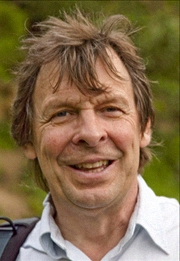Tutor HuntResources Life Coaching Resources
Introduction To End Of Life Counselling
Training introduction for counsellors
Date : 13/02/2014
Author Information

Uploaded by : Nick
Uploaded on : 13/02/2014
Subject : Life Coaching
There has never been a better time to become involved with care for people who are reaching the end of their lives. Society has recently begun to respond more creatively and considerately to the needs of a dying person. Major social events like "Kicking the Bucket festivals," in London and Oxford, and the formation of organisations like The Natural Death Society have placed a spotlight on an area of work that has been a backwater, if not locked in a back ward. The baby boomer generation do not intend to go quietly and are looking for help in making a good end to their lives. "Dying Matters", a campaign group which has grown out of the National Association for Palliative Care has brought the issue into focus for many people.
Psychotherapy and Counselling are starting to become involved too. Therapists already work in hospices, but there are growing opportunities in the care sector and in private practice. I have designed a course for counsellors and therapists who would like to deepen and expand their horizons into a challenging and fascinating area of work. The course is aimed at people who care deeply about contributing to the quality of life of those who are nearing the end of their lives. It aims to prepare counsellors and a wide range of professional care givers for the task of responding therapeutically, sensitively and creatively to end of life issues in their work. It provides helpful theoretical frameworks for thinking, feeling and understanding psychological processes specific to the end of life.
People who have already done a first training in counselling and/or psychotherapy will find it both interesting and challenging, since it asks all sorts of fundamental questions and attempts to address a number of practical problems which stretch the normal boundaries of professional practice. It explores those big existential questions of the nature of reality, life and death.
The course is relevant to nurses and doctors and social care practitioners as well as therapists. It explores the physical, social, emotional and spiritual dimensions of dying. Building on the well established concepts of Elizabeth Kubler-Ross it moves into an exploration of the ideas of Stanislav Grof, who has done pioneering work relating to different methods of counselling as they affect people who are dying.
The course invites a student to consider expanding the concept of counselling to embrace working with partners, family and community members, who all have a part to play in this process of living and dying.
Doing psychological therapy with people who are dying is often difficult and demanding. A therapist may need to try to work with a client in a strongly altered state or in various levels of coma. Pioneering work by Arnold Mindell has shown us that it is possible and even desirable to attempt to do such work. One of the lessons focuses on this process of dancing on the edge of eternity.
This resource was uploaded by: Nick
